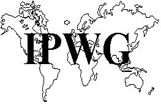Abstract
When Doves Support War and Hawks Oppose it:
An Analysis of Humanitarian Intervention in Kosova
Ever since human rights were accepted as internationally enforcable, humanitarian intervention became a vital issue in contemporary international relations, as a touching point between idealism and realism. In this context, the NATO intervention in Kosova is analyzed from three perspectives:
First, analyzed from the perspective of consequentalist ethics, the "good² brought by the intervention outweighed the "evil.² The NATO air raids were justified as the most ethical decision given the time pressure of race against time¹ after all other peaceful means had been exhausted. The sins of commission¹ compared with the sins of ommission¹ are lower in terms of human costs as well as implications for regional security.
The second part of the paper analyzed the intervention in terms of just war theory and the theory of self-help. The NATO intervention qualifies as just war based on six criteria: just cause, right authority, right intention, last resort, likely emergent peace, and proportionality. The theory of self-help does not apply in an increasingly pervading single human race culture in a contemporary understanding of universal human rights. Helping thy neighbor is as legitimate as defending oneself. Comparing the principles of pacifism, non-intervention with that of just war, the paper concludes that a pragmatic pacifist is not far from a just war theorist.
Finally, the case is analyzed within the greater picture of international law paying extensive attention to the way that costumary international law shapes rules of international behavior. Despite being exceptional in nature, the conflict of Kosova made the need for a wide array of changes in the structure of international law obvious. The number of international wars has diminshed greatly since the UN Charter was initially established but the level violence has not, therefore, in order not to get sidelined by future needs to keep peace in the world and preserve it as the main source of international order, the UN Charter needs to reflect the change of fears that have occurred ever since its establishment. Today, the main threat to humanity are internal wars and the states¹ that suppress them by force. The principle of sovereignty which fifty years ago guaranteed states freedom from international intervention guarantees them supression of their own citizens with impunity today.
NATO gained post-factum approval by the world community through: (a) non-opposition of the members of the UN General Assembly; (b) the decline of the draft resolution to demand immediate cessation of the NATO intervention; and (c) the willingness of NATO to cooperate with Russia and other non-NATO countries in its peacekeeping force and submit the administration of the region to the UN, as well as recognition of the UN authority over the future political status of Kosova.
In order to adapt the current international law to meet both security and moral imperatives, the paper further offers a set of criteria for future humanitarian interventions. It tries to diffuse the tension between the moral imperative to intervene, the vested interests in the Security Council and the need to reform the SC and shift some of the security issues to the agenda of of the General Assembly.
For the full text please contact the author !
|




